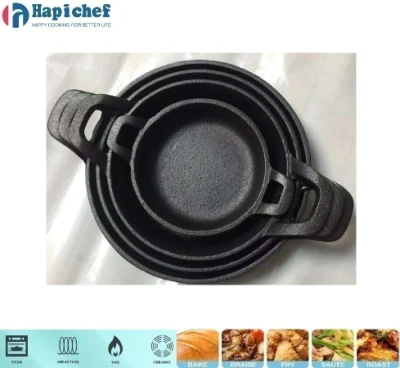cast iron skillet
The Versatility and Charm of Cast Iron Skillets
Cast iron skillets have been a staple in kitchens for centuries, cherished for their durability, versatility, and ability to retain heat. These heavy-duty pans are not just tools; they are culinary companions that enrich our cooking experience and bring flavors to life.
Historical Background
The history of cast iron cookware dates back to ancient China around 200 BCE. However, it wasn’t until the 18th century that it gained popularity in Europe, particularly in England. By the 19th century, American households began to rely heavily on cast iron for cooking, thanks to its durability and excellent heat retention. Many families today still possess heirloom pieces, passed down through generations, telling a story of culinary traditions that span decades, if not centuries.
Why Choose Cast Iron?
One of the biggest advantages of cast iron skillets is their exceptional heat retention. Unlike aluminum or non-stick pans, which may heat unevenly, cast iron distributes heat uniformly, allowing for better browning and searing. This makes it ideal for frying, sautéing, and baking. Whether you’re making cornbread, frittatas, or a perfect steak, a cast iron skillet can handle it all.
Moreover, cast iron cookware is incredibly versatile. You can use it on the stovetop, in the oven, or even over an open flame, making it perfect for both indoor cooking and outdoor grilling or camping. Some enthusiasts even use cast iron skillets for baking, creating delicious baked goods with a perfectly crispy crust.
cast iron skillet

Seasoning and Maintenance
One of the unique characteristics of cast iron skillets is their need for seasoning. Seasoning involves coating the skillet with oil and heating it, creating a natural non-stick surface that improves with use. This process not only enhances the skillet's cooking performance but also protects it from rusting. While it may require a bit more maintenance than other cookware, many find the results worth the effort. Properly seasoned skillets can last a lifetime and even become better with age, developing a rich patina that adds flavor to your dishes.
To care for a cast iron skillet, it is essential to clean it properly after each use. Avoid soap and harsh detergents, as these can strip the seasoning. Instead, scrub it with hot water and a stiff brush or use coarse salt as an abrasive. Once clean, dry it thoroughly on low heat and apply a light coat of oil to maintain its seasoning.
Health Benefits
Cooking with cast iron has its health benefits, too. One unique aspect of cast iron skillets is their ability to transfer small amounts of iron into food, potentially benefiting those with iron deficiency. Unlike some non-stick coatings that release harmful chemicals at high temperatures, cast iron is a natural option that can withstand high heat without any safety concerns.
Conclusion
In a world filled with ever-evolving kitchen gadgets and non-stick surfaces, cast iron skillets stand the test of time. Their historical significance, unmatched versatility, and ability to enhance the cooking experience make them an invaluable asset in any kitchen. Whether you’re a seasoned chef or a novice home cook, a cast iron skillet is a worthwhile investment that promises delicious meals and lasting memories. Embrace the beauty and functionality of this traditional cookware, and you may find it becomes your go-to tool for culinary adventures. So, whether you’re frying, baking, or simply sautéing, let the cast iron skillet be your partner in the kitchen, creating dishes that resonate with flavor and history.
-
Standard Product Lines from Cast Iron Cookware SuppliersNewsJun.11,2025
-
Searing Techniques for Casserole Cast Iron DishNewsJun.11,2025
-
High-heat Searing on Cast Iron BBQ GrillNewsJun.11,2025
-
Dutch Oven Pizza TechniquesNewsJun.11,2025
-
Best Cast Iron Flat Top Grill for Home UseNewsJun.11,2025
-
Baking Bread in Enameled Cast Iron BakewareNewsJun.11,2025
-
The Science of Enameled Cast Iron Baking PanNewsJun.09,2025
